Light pollution is causing spring to come at least a week earlier in the UK, a new study has revealed.
The report, published in the journal Proceedings of the Royal Society B, found that budburst in trees occurs up to 7.5 days earlier in brighter areas, with later-budding species being more affected.
The link between light pollution and changes in animal behaviour has been well documented, but this is the first time its impact specifically on plant phenology has been examined on a national scale.
The paper’s authors believe that this early budburst is likely to have a knock-on effect on the life cycles of insects and birds that live in sync with the trees.
Professor Richard ffrench-Constant from the University of Exeter’s Centre for Ecology and Conservation, who led the research, stressed that the study’s results: “highlight the need to carry out experimental investigation into the impact of artificial night-time lighting on phenology and species interactions.”
Its authors also emphasise the need for further research into the impacts of differing wavelengths or qualities of light that can be generated by different lighting types.
The study used data from citizen scientists across the UK, as part of the 13-year dataset that it examined. The Woodland Trust asks people to record when they first saw sycamore, oak, ash and beech trees in leaf as part of its Nature’s Calendar initiative.
Speaking about the research, Dr Kate Lewthwaite, Woodland Trust citizen science manager, said: “Analysis of Nature’s Calendar data suggests that increased urbanisation is continuing to put pressure on the natural world, in ways that we could not have foreseen.
“As the seasons become less and less predictable, our native wildlife may struggle to keep up with fluctuations that affect habitats and food sources. Hopefully this research will lead to new thinking on how to tackle such issues, and will help influence future development decisions.”
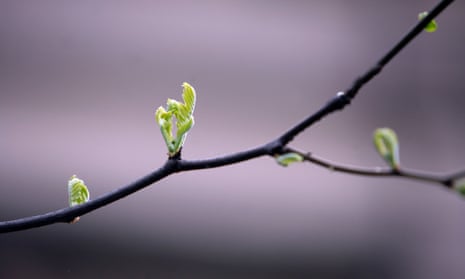

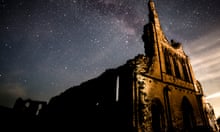
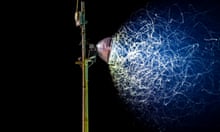
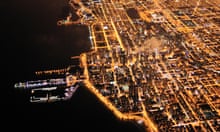
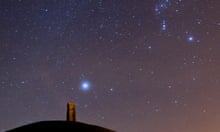
Comments (…)
Sign in or create your Guardian account to join the discussion